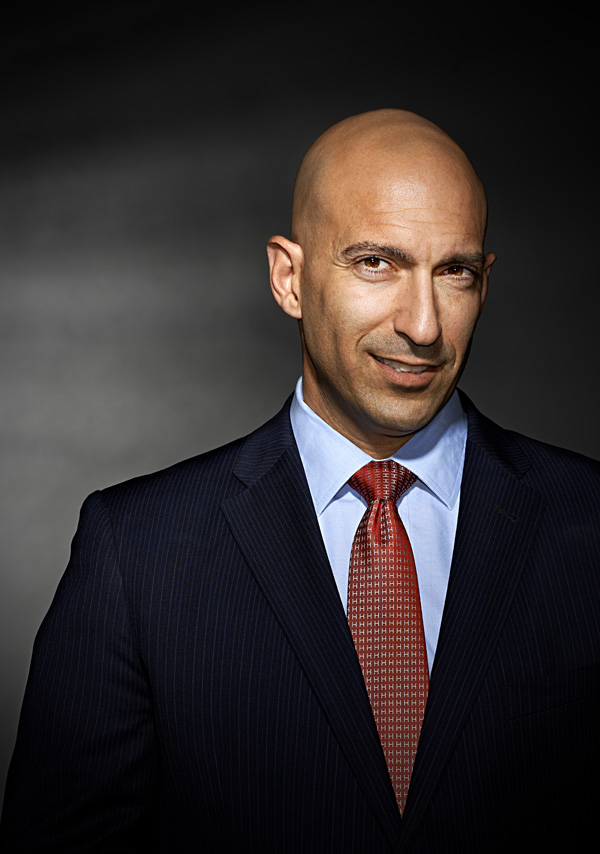It was at a gala more than a year ago, at the Hotel InterContinental. The decor had a Taiwanese theme. Guests were wearing formal attire, sipping from champagne flutes, nibbling hors d’oeuvres. Most of the Richardson city government was there, as well as the town’s most powerful movers and shakers. An older man approached two-term City Councilman Amir Omar and wanted to talk. Omar, believed to be the first Muslim elected to any municipal office anywhere in North Texas, doesn’t want to give the man’s name, but he describes him as “a strong supporter of mine, until then.”
They stepped outside for a minute. The older man wanted to talk about something troubling a lot of the city’s residents. It had nothing to do with race or religion. This was about the issue of a directly elected mayor. Since the city’s charter was passed in 1956, Richardson’s City Council had always selected the mayor among themselves, a model employed by about 20 percent of city governments in the United States. But now the issue had come up in several public forums, and some people even wanted the Council to put it to a vote. The man had heard that Omar was in favor of changing the city charter, in favor of the residents of Richardson directly electing their mayor instead of the way it’d been done for decades. The conversation was tense. “He was respectful,” Omar says, looking back, “but he wanted to let me know that he really, really disagreed with me.”
Though he was an outsider, and he doesn’t fit the demographic of the city’s all-white Council, this was the first time the young councilman had disagreed with anyone in what he calls “the old guard of Richardson.” By the end of the discussion, the older man was red in the face, shouting. Omar felt awkward, but no less resolute. The two didn’t speak to each other for the rest of the party.
Now, by the “old guard,” Omar is primarily referring to the Richardson Coalition, a well-financed group of concerned citizens that includes Charles Eisemann, for whom the city’s $50 million performing arts center is named. In the last two city elections, Coalition-supported City Council candidates—a group that has twice included Omar—were undefeated, 14 to 0. The position of mayor in Richardson is largely ceremonial—the only powers the mayor has that other City Council members don’t involve running meetings and cutting ribbons—but the members of the Coalition worried about losing power and control of the city, and they strongly opposed the idea of a directly elected mayor. The older man at the party was so worked up because he saw his way of life changing and he felt helpless. For many, the debate epitomized the struggle between “new Richardson” (young families interested in urban development and things like parks and the new Alamo Drafthouse) and “old Richardson” (mostly white retirees more interested in bringing new corporations and big office buildings).
A few days after that tense conversation at the party, the Council voted on the issue. Opponents at the time claimed that the old system fostered a better working relationship between the mayor and the Council. In his support of the change— even when he knew he would lose and thought the issue would be dead—Omar argued that “the voters of Richardson are just as smart as the voters in Frisco or Plano, where they directly elect their mayors.” The vote was six to one, with Omar as the only dissent. The Council declined to change the city’s charter to allow for a directly elected mayor. Omar figured that would be the end of the directly elected mayor talk.
But within weeks, a citizen had a petition circulating. There was an Austin-based consulting firm involved and young people paid to go door to door. (Omar says he was aware of the operation, but that he wasn’t involved.) Soon there were enough signatures to get the issue on the November ballot. And when election day came, more than 75 percent of the voters in Richardson wanted to change the city’s charter and get rid of the older system. The people wanted to pick the face of their city themselves.
So Amir Omar is running for mayor. The election is next month, and if he wins, he’ll be the first Iranian-American directly elected mayor anywhere in the country. (There have been a few other Iranian-American mayors, but only in systems like Richardson used to have—never elected by popular vote.) But this time, after butting heads on the direct election issue, Omar will not have the support of the Richardson Coalition. Whether it’s old-school politics, grudge holding, or the fact that Omar is simply too unpredictable (read: uncontrollable), the power establishment is supporting Laura Maczka.
Maczka serves as mayor pro tem, and she was expected to take over as mayor if the city charter hadn’t changed. She points out that if she’s elected, she’ll be only the second woman mayor in the town’s history. And while Omar is a popular new face in town, Maczka has lived in Richardson for more than 30 years. Her parents live here, and she wants her kids to live here when they grow up. She’s on a state commission, appointed by Governor Rick Perry himself.
“I have a history of working well with the other members of the City Council,” she says.
So far Omar has attracted nearly three times as many donors as Maczka has for his campaign (and raised more money). It’s contentious, but only in that polite, clean suburban way. Maczka describes Omar as “an excellent council member,” and he says the same of her.
Of course it would be an inspiring American story if Omar won. It would fit so many celebrated political tropes: he’s the son of immigrants, an Iranian mother and a Palestinian father. She was rich; he was poor. One was Sunni; one was Shi’ite. But they met in college in Arizona, married, and moved to South Texas, where they raised Omar. He went to Texas A&M, where he started his own laundry business, then moved to Dallas to work in telecom.
“This could only happen in America,” he likes to tell people.
In his two terms on the Council (he was reelected by a two-to-one margin in 2011), he’s been active—everything from organizing the city’s first triathlon for kids, to literally becoming the poster boy for the local YMCA (“You know what the ‘C’ stands for, don’t you?” he says with a smile), to being selected by the nonprofit One Man Dallas as the one adult male “who represents the best of DFW community engagement.” But his biggest project, the one he talks about most, is planting trees. He is the force behind Tree the Town, an initiative to plant and care for 50,000 new trees in Richardson over the next 10 years.
Yes, he’s had to deal with racism. There have been “whisper campaigns,” he says. One time someone sent back one of his mailers with Omar’s name crossed out and “NO TO SHARIA LAW!” written in the comment field. He’s hesitant to even discuss it for fear of empowering such a tiny fraction of ignorant people. He doesn’t expect it to be a factor in the election.
The biggest issue in the race is still the fact that it’s even taking place. Maczka was one of the six council members who voted against reviewing the city charter. Now she’s in a tough spot. She says she wasn’t opposed to the change, despite her vote more than a year ago. She just didn’t think it was something the City Council should have taken up at that particular moment.
“In order to do the citizens justice, we were going to have to allow time to do it the right way,” she says now, explaining herself. “We would have had to select the commission, and they would have to go about the business of meeting—and all that would have to be televised. It would have taken more than 90 days of our time, and that’s why I voted no. I was very careful.”






